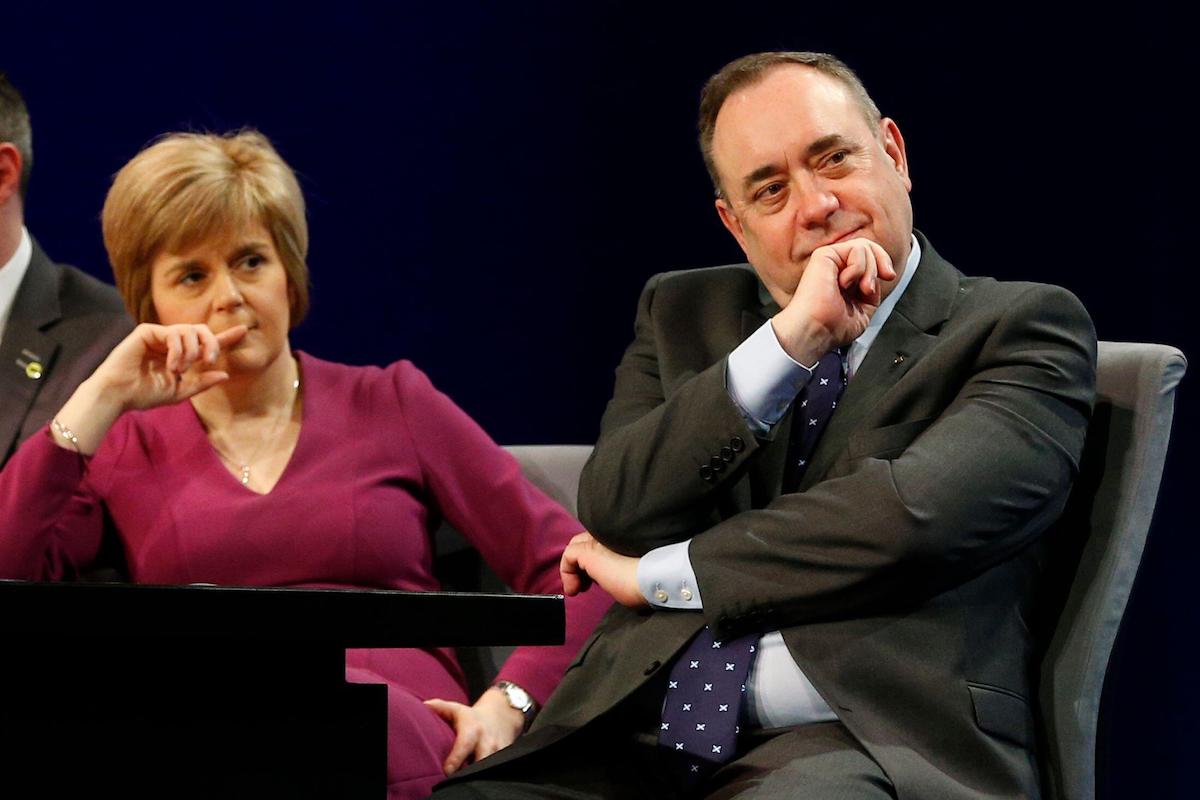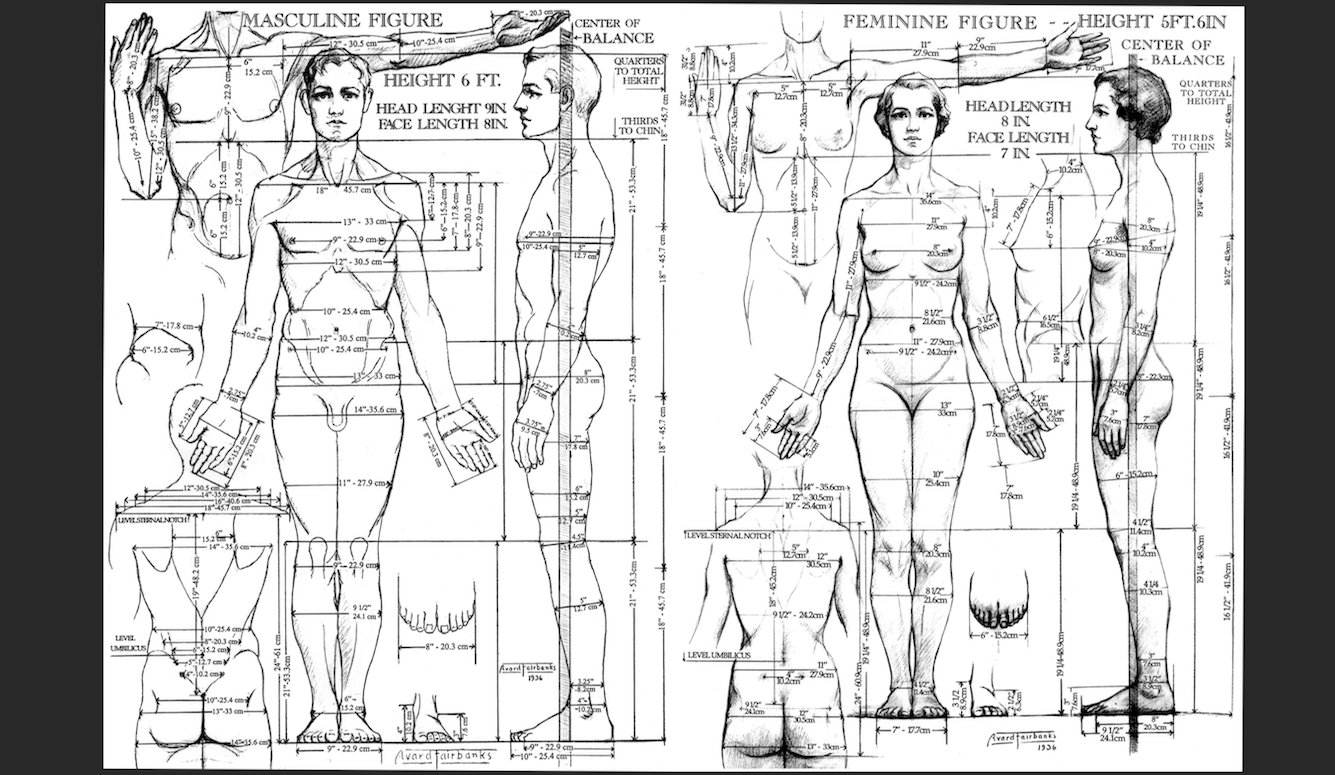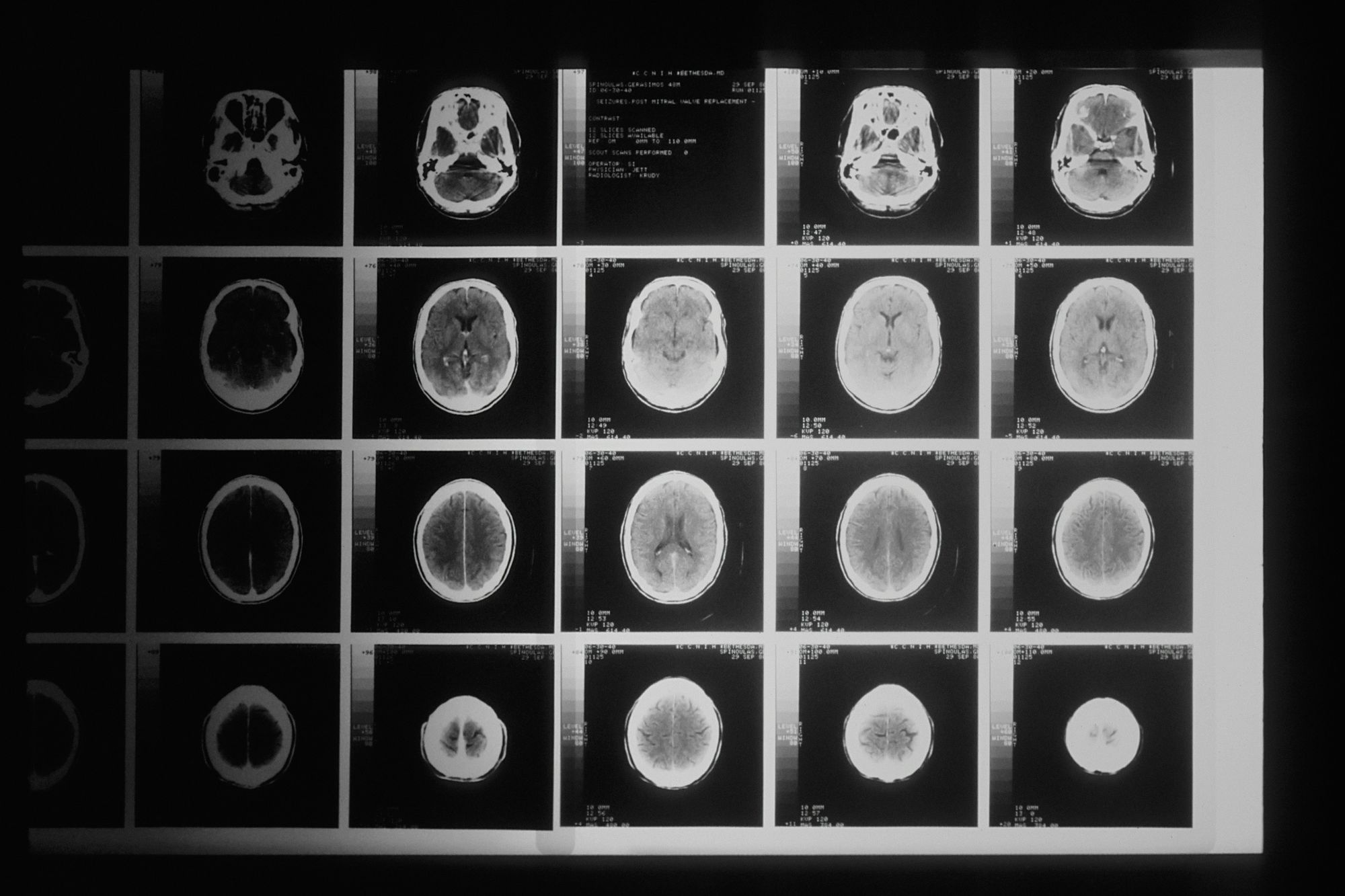Culture Wars
Scottish Nationalists in Turmoil
The trans argument shows how easily it may be rocked back on its heels. Neither of the two women at loggerheads are transphobic on any but an extreme definition; they merely differ about how easy it should be to register a sex change.

Who would have thought that Scotland’s largest party would be roiled by sex scandals? Sex is not normally seen as part of Scotland’s national brand, but it is now and it has not added lustre. The Scottish National Party (SNP) has, for nearly 90 years, sought the break-up of Britain, believing that the Union of 1707 between Scotland and England was illegitimate. It was attained by bribery of the Scots parliamentarians, thereby destroying the Edinburgh parliament and absorbing political Scotland into Westminster government. The home of eccentrics and literary men and women, nationalism was for a long time regarded by most Scots as a tartan fringe and a wasted vote. Before and during the Second World War, some of its leaders even leaned towards the Nazis, in the cranky hope that a German victory over England would deliver liberation for Scotland. To this end, the most prominent Scots writer, Hugh MacDiarmid, wrote unpublished poems calling for the Luftwaffe to destroy London, “the earth’s greatest stumbling block and rock of offence.” The electorate remained unconvinced.
Nevertheless, the SNP hung on and even briefly won the Motherwell seat in Scotland’s west at a by-election before losing it again to the Labour tide in 1945. The 50s remained drear for the party, but Britain’s relative decline in the world—the end of an empire which had served Scots well—and rising unemployment allowed the party to accuse both Conservative and Labour governments of ignoring Scotland. In 1967, SNP candidate Winnie Ewing won the industrial town of Hamilton. Since then, albeit erratically, the party has only grown. In the 21st century, one man was chiefly responsible for shaping the SNP into a party which gained political hegemony over a nation (though no longer a nation state) of 5.46m people.
Alex Salmond hailed from a lower-middle-class background, and in 1973, he joined the nationalist society at St Andrews University, one of only two members. He graduated with an economics degree, and during his subsequent career as an oil economist, he rose rapidly in the SNP. By 1990, he had become leader, and the party’s popularity was now surging. The 1997 Labour government had committed itself to the creation of a devolved assembly, and Salmond led the SNP to victory in the Scots parliamentary election of 2007. It has been in power there ever since.
Under Salmond’s leadership, the SNP became formidably well organised and, until now, rigidly disciplined. Today, it attracts greater support than the Unionist Labour, Conservative, and Liberal Democrat parties combined. Its one fright occurred in 2017, when a bright and determined young leader of the Scottish Conservatives, Ruth Davidson, increased her party’s vote-share to just under 29 percent. But then Davidson resigned, citing tensions over Brexit and her wish to spend more time with her first child. Salmond had also resigned in 2014, following a referendum on independence which the nationalists lost solidly (if not dramatically) by 55–45 percent.
Salmond was replaced as party leader by his preferred successor and deputy, Nicola Sturgeon, a 44-year-old Glaswegian lawyer. He took a presenter’s job in London with the Russian state news and propaganda channel RT (Russia Today), a move that offered an indication of just how much he disliked Britain. In the first intimation of internal discord, Sturgeon issued a statement in 2017, saying she “would have advised against it” and would not “shy away” from criticising President Putin. In the years since, relations between the two have deteriorated more rapidly, and it is here that sex enters the political narrative.
* * *

Last year, Salmond went on trial at the Edinburgh High Court, charged with 13 offences of sexual assault brought by 10 women. These had first emerged in 2018, and Salmond promptly resigned his party membership in order, he said, to clear his name. He brought an action against the Scots government for improprieties in its handling of the issue, and ultimately won £500,000 in damages. Leslie Evans, permanent secretary to the government, should now “consider her position,” he said. He seemed to suspect her of being part of a group around Sturgeon dedicated to his humiliation.
The trial returned an extraordinary verdict: not guilty on all counts, save one—a minor charge which the court found was “not proven,” a decision peculiar to Scots justice that carries no penalty. So, Salmond walked free from the court, announcing that his exculpation paled in significance before COVID and calling upon God to help us all. A documentary prepared for the BBC on the obvious assumption that Salmond would be convicted included a useful summary of the court proceedings but a lame ending and no Salmond.
Questions still hang over all this. Why did 10 women, one of whom was a member of the SNP, make untrue allegations of sexual assault? The complainants have not been named, but are said to be “devastated” by the trial’s outcome. Were they, as Salmond clearly believes, encouraged to make their accusations by the First Minister’s associates? In 2018, Salmond had denied the charges accumulating against him, but curiously had also admitted to making “many” unspecified “mistakes.” His lawyer, Gordon Jackson QC, told the jury that his client “could have been a better man” but that he was not a sex criminal.
The pandemic spread a stifling blanket over some of the fallout, but not all. A committee of inquiry into Salmond’s claims and Sturgeon’s actions—headed, naturally, by an SNP member of the Scottish parliament, Linda Fabiani—has convened for months and still not spoken to the two principals. In a scathing attack on its work, the former law professor Alistair Bonnington, who taught Sturgeon when she was studying law at Glasgow University, accused the committee of deliberately failing to examine key evidence and of sitting for only one afternoon a week in order to slow the process.
His former student, he said, has “made herculean efforts to frustrate the inquiry at every turn.” He continued: “I can’t help noticing that the present Scottish government seem to be very good at appointing ‘inquiries,’ all of which reach the conclusion that the government has behaved splendidly throughout.” He pointed out that an inquiry into the spread of COVID in Scottish care homes thought to have been caused by the introduction of infectious patients “concluded that it was impossible to say that these patients were the cause of the spread of COVID within these homes. So it must all have been a coincidence. Who would have thought that? The Scottish government off the hook yet again.”
Bonnington believes that the senior civil servants who advise Sturgeon, and who, when called upon by the committee, claimed to have no memory of key details, showed “at best amnesia and at worst idiocy as explanations for failing to tell the whole truth makes one wonder if we have a team of total diddies at the top.” By the beginning of February, the issue had descended into farce. Peter Murrell, chief executive of the SNP and Sturgeon’s husband, was recalled by the committee of inquiry but refused to appear, pleading work commitments. The Labour Party representative on the SNP-dominated committee, Jackie Baillie, asked for an investigation into Murrell’s previous evidence, and whether or not he had perjured himself. A Conservative representative, Murdo Fraser, said that Murrell’s evidence had been “littered with contradictory statements.”

The SNP chief executive has made one thing clear, however: that arrogance of power has engulfed the SNP leadership, and no longer cares to hide itself. Murrell’s refusal to reappear before the committee is a message from the top—this inquiry means nothing to us. How can they get away with such contempt? Sturgeon may consider herself invincible, and not without reason. She has been lauded in Scotland and across the UK for her precise daily briefings, which compare favourably with Johnson’s rambling appearances. And when the pro-Union group These Islands conducted a series of focus groups in September/October last year to determine what Scots thought of their government and their parties, Sturgeon emerged as almost divine. When the group’s convener asked members what they thought of economists’ warnings about Scotland’s future outside the UK, these were either denied as Unionist propaganda or said to be objections with which “Nicola” was already familiar and prepared to address. The percentage of Scots willing to vote to leave the UK now usually exceeds 50 percent, and in some cases is as high as 58 percent.
Outrage over Brexit, dislike of Boris Johnson, and the weakness of the Scots unionist parties (Labour’s leader resigned last month, a replacement has yet to be confirmed) will combine, it seems, to ensure a comfortable victory in May’s Scottish parliament elections. Then, Sturgeon says, onward to another referendum. Johnson, who as UK Prime Minister can allow or refuse such a vote, has indicated that there won’t be another until the 2050s, when he (56) and Sturgeon (50) will both be in their 80s. The SNP has responded by saying that, come victory in May, they will pass a law in the Scots parliament so that a referendum can be held anyway. A standoff looms, with the SNP confident of being able to hold the moral ground after the election.
Then a new controversy erupted. Joanna Cherry, 54, is an MP in the SNP’s group at Westminster and a barrister and Queen’s Counsel. She is also an ambitious and formidable politician, who dislikes the First Minister and supports Alex Salmond. Cherry has been a thorn in Sturgeon’s side for some time, and has constantly criticised the latter’s cautious insistence that London’s permission must be secured before a new referendum can be called. If a popular vote is held without it, Sturgeon argues, an independent Scotland would not be recognised internationally and the long-desired application for membership of the EU would fail.
Cherry had wanted to run for the Scottish parliamentary constituency of Edinburgh South West in May, but was thwarted by a rule change. Instead, Angus Robertson, a former deputy leader of the SNP and a Sturgeon loyalist, will contest the seat. Naturally, there was a big row over that, but a much larger one has since erupted, and simmers still, over the nature of sex and gender. Cherry believes that transwomen are male, and has vehemently opposed Sturgeon’s proposals to make self-identification as a “trans” easier. Under the proposed reforms, a certificate of Gender Recognition may be issued within six months following a simple declaration that a person wishes to transition. Cherry is one of 16 SNP politicians who have signed an appeal against this change. Openly gay, she insists she is “not remotely” transphobic, but believes that women would be endangered by the presence of biological males in women-only spaces.
Powerful in intellect and speech, Cherry’s undisguised ambition to be leader clearly worries Sturgeon, and in early February, she was removed from the front bench position she occupied in Westminster. Yet her influence remains: even the National, the SNP’s daily paper and usually a strong supporter of its leadership, wrote that Cherry was “in pole position” to compete with Sturgeon for the leadership. Further, Cherry’s criticism of the First Minister’s caution is increasingly popular on the national executive committee, which swung strongly to the Left in elections last year.
Cherry’s sacking offers a timely reminder of Sturgeon’s impatience with any sort of challenge. It may also be a mistake. Cherry and Salmond have an expanding base of support, and her stance on trans rights may do her good rather than harm. Sturgeon is strongly feminist, and her feminism embraces the demands of the trans lobby—she says she is concerned that transphobia (that is, opinions on transgender laws that differ from her own) is strong within the party, and that a number of transgendered members have left, feeling that the SNP is no longer “safe.”
* * *

For all its success, the SNP now shows signs of frailty. Its growth and dominance in Scotland has been achieved by two leaders—Salmond and Sturgeon—who ruled the party, and for many in Scotland were the party. It has positioned itself as centre-Left, but vaguely, with no precise economic programme and little interest in defining itself, afraid that it will lose members from either the Left or the Right.
The trans argument shows how easily it may be rocked back on its heels. Neither of the two women at loggerheads are transphobic on any but an extreme definition; they merely differ about how easy it should be to register a sex change. The quarrel is a proxy for who wields power, and it is growing just as the nationalists approach a hugely consequential election, the outcome of which may yet determine the future of the UK. The secession of Scotland, the former Conservative Chancellor George Osborne argued in the Evening Standard last month, “would represent the end of the United Kingdom. The rest of the world would instantly see that we were no longer a front-rank power, or even in the second row.”
So far, these internal struggles have resulted in no obvious fall in SNP popularity, but Unionists hope that in time they will cause popular disillusion. Were such a development to occur, the bid for secession may fail. Arguments about sex and gender could help save a three-century-old union, at least for now.






